ECTS Organises Webinars on practical issues on Bone Muscle & Beyond topics, including basic and clinical research. These webinars feature prominent speakers and allow participants to ask questions regarding the latest information on relevant topics.
Registration is free for members and non-members.
Upcoming Webinars
Webinar Bone, Muscle & Beyond series: Glucocorticoid Induced Osteoporosis (GIOP) – update, guideline, new perspectives
Topic: Glucocorticoid Induced Osteoporosis (GIOP) - update, guideline, new perspectives Organised by the ECTS E-learning action group Chair: Dr Lars Folkestad, University of Southern Denmark, Odense......
Read more | RegisterWebinar Bone, Muscle & Beyond: Teeth as a window into bone health
Topic: Teeth as a window into bone health Organised by the ECTS E-learning action group Chair: Prof Björn Busse, University Medical Center Hamburg - Eppendorf, Hamburg, Germany Speakers: TBC Dat......
Read moreWebinar Bone, Muscle & Beyond: Quo vadis animal experimentation in skeletal research?
Topic: Quo vadis animal experimentation in skeletal research? Organised by the ECTS E-learning action group Chair: Dr Maria-Bernadette Madel, Baylor College of Medicine, Texas, USA Speakers: Prof D......
Read moreWebinar Bone, Muscle & Beyond: Large genomic studies of osteoarthritis
Topic: Large genomic studies of osteoarthritis Organised by the ECTS E-learning action group Chair: Dr Maria Carolina Medina Gomez, Erasmus MC University Medical Center Rotterdam, Rotterdam, Netherl......
Read moreWebinar Bone, Muscle & Beyond: Bone and cartilage crosstalk
Topic: Bone and cartilage crosstalk Organised by the ECTS E-learning action group Chair: Dr Maria-Bernadette Madel, Baylor College of Medicine, Texas, USA Speaker: Prof Yves Henrotin, University of......
Read moreWebinar Bone, Muscle & Beyond: Longterm bone health in cancer survivors
Topic: Longterm bone health in cancer survivors Organised by the ECTS E-learning action group Chair: Dr Elizabeth Curtis, Southampton General Hospital, Southampton, UK Speakers: TBC Date & Ti......
Read moreWebinar Bone, Muscle & Beyond: Astronaut bone health
Topic: Astronaut bone health Organised by the ECTS E-learning action group Chair: Dr Katharina Jähn-Rickert, University Medical Center Hamburg-Eppendorf, Hamburg, Germany Speaker: Prof Laurence Vi......
Read moreWebinar Bone, Muscle & Beyond: Understanding modeling and remodeling of bone
Topic: Understanding modeling and remodeling of bone Organised by the ECTS E-learning action group Chair: Dr Katharina Jähn-Rickert, University Medical Center Hamburg-Eppendorf, Hamburg, Germany S......
Read morePast Webinars
Webinar Bone, Muscle & Beyond series: Osteoporosis drug holidays, when, how, who (real-world evidence and/or pharmacoepidemiology)
Topic: Osteoporosis drug holidays, when, how, who (real-world evidence and/or pharmacoepidemiology) Organised by the ECTS E-learning action group Chair: Dr Lars Folkestad, University of Southern Den......
Read more | RegisterWebinar Rare Bone Diseases: Recognising children with Skeletal Dysplasias – Radiology
Organisers: European Calcified Tissue Society and ERN BOND Topic: Recognising children with Skeletal Dysplasias - Radiology Chairs: Prof Uwe Kornak, University of Göttingen, Göttingen, Germany &am......
Read more | RegisterRare Bone Diseases Webinar Series: Hypophosphatasia in children
Organisers: European Calcified Tissue Society and ERN BOND Topic: Hypophosphatasia in children Chairs: Prof Dr Heide Siggelkow, MVZ Endokrinologikum Göttingen, Göttingen, Germany & Dr Giulia B......
Read more | RegisterWebinar Bone, Muscle & Beyond: Bone health in low and middle income countries
Topic: Bone health in low and middle-income countries Organised by the ECTS Academy Chairs: Dr Elizabeth Curtis, MRC Lifecourse Epidemiology Centre, University of Southampton, Southampton, UK &......
Read more | RegisterWebinar Bone, Muscle & Beyond: What is New in Bone Research – Highlights from 2023
Topic: What is New in Bone Research - 2023 Highlights Chaired by Dr Michaël Laurent, Metabolic Bone Diseases Unit, KU Leuven University Hospitals Leuven Gasthuisberg Campus, Leuven, Belgium Prese......
Read more | RegisterRare Bone Diseases Webinar Series: The EuRR-Bone registries, Why, What and how?
Organisers: European Calcified Tissue Society and ERN BOND Topic: The EuRR-Bone registries, Why, What and how? Speaker: Dr Natasha Appelman-Dijkstra, Leiden University Medical Center, Leiden, The Ne......
Read more | RegisterRare Bone Diseases Webinar Series: Hypophosphatasia in adults: diagnosis and treatment
Organisers: European Calcified Tissue Society and ERN BOND Topic: Hypophosphatasia in adults: diagnosis and treatment Speaker: Dr Lothar Seefried, University of Wuerzburg, Germany Hosts: Prof Marti......
Read more | RegisterEast-Meets-West Webinar: Different dietetic approaches and therapeutic approaches of hypoparathyroidism in Eastern and Western countries
Time: 2:00pm-3:30pm CET • 8:00am-9:30am EDT • 7:00am-8:30am CST Costs: Free Webinar. Recordings will be made available to members and registered delegates. Programme Introduct......
Read more | RegisterWebinar Bone, Muscle & Beyond: Diagnosis and treatment of tumor-induced osteomalacia
Topic: Cellular senescence in the musculoskeletal system and potential clinical implications Chair: Dr Jessica Pepe, Sapienza University, Rome, Italy Speaker: Prof Suzanne Marie Jan de Beur, Associa......
Read more | RegisterWebinar Bone, Muscle & Beyond: Diabetes and Bone – from bench to bedside and population
Topic: Cellular senescence in the musculoskeletal system and potential clinical implications Chair: Dr Jessica Pepe, Sapienza University, Rome, Italy Speakers: Dr Martina Rauner, Professor of Molecu......
Read more | RegisterWebinar Bone, Muscle & Beyond: Bone marrow adipocytes as novel regulators of metabolic homeostasis, immune function, and skeletal health
Topic: Cellular senescence in the musculoskeletal system and potential clinical implications Chair: Dr Jeroen Geurts, Principle Investigator, Lausanne University Hospital, Lausanne, Switzerland Spea......
Read more | RegisterWebinar Bone, Muscle & Beyond: Osteocytes – center stage in the skeleton
Please note: this webinar has been cancelled until further notice. Topic: Osteocytes - center stage in the skeleton Speaker: Prof Lynda F Bonewald, Director of the Indiana Center for Musculoskelet......
Read moreWebinar Bone, Muscle & Beyond: The importance of water in bone quality
Topic: The importance of water in bone quality Speaker: Dr Mustafa Unal, Assistant Professor, Department of Bioengineering Karamanoglu Mehmetbey Üniversitesi, Turkey Chair: Dr Ling Oei, Department......
Read more | RegisterWebinar Bone, Muscle & Beyond: Cellular senescence in the musculoskeletal system and potential clinical implications
Topic: Cellular senescence in the musculoskeletal system and potential clinical implications Chair: Dr Lars Folkestad, Department of Endocrinology, Odense University Hospital, Odense, Denmark Speak......
Read more | RegisterECTS Webinar: Osteoporosis management in patients with high/imminent fracture risk
Date & Time : Thursday 2 February 2023, 16.00-17.00hrs CET Chaired by Dr Lars Folkestad, Odense University Hospital, Odense, Denmark Presented by Prof Eugene McCloskey, Professor in Adul......
Read more | RegisterWebinar Bone, Muscle & Beyond: What’s new in primary and secondary osteoporosis in children. An update on the genetics of paediatric fractures, and on secondary osteoporosis in paediatrics
Date & Time: 15 December 2022, 4 pm CET Featuring Dr Carolina Medina-Gomez & Dr Leanne Ward, Chaired by Dr Maria-Bernadette Madel Format: 5 min welcome & introductions 20......
Read more | RegisterWebinar Bone, Muscle & Beyond: Skeletal dysplasias in inborn errors of metabolism
Date & Time: 17 November 2022, 4 pm CET Featuring Dr Brendan Lee and moderated by Dr Jessica Pepe Organised by the ECTS and ICCBH Format: 5 min welcome & introductions 35 min......
Read more | RegisterWebinar Bone, Muscle & Beyond: Relationship between the nervous system and the skeleton
Date & Time: 15 September 2022, 4-5 pm CEST, followed by 15 minutes of interactive discussions in a Coffee Shop style Organised by the European Calcified Tissue Society (ECTS) in collaboration......
Read more | RegisterWebinar Bone, Muscle & Beyond: Atypical femur fractures – genetic background and treatment dilemma’s
Date & Time: 21 July 2022, 4 pm CET Featuring Prof Carola Zillikens Format: 5 min welcome & introductions 35 min presentation 20 min Q&A Followed by a Coffee Shop Co......
Read more | RegisterWebinar Bone, Muscle & Beyond: Recruiting, collecting and analyzing: A-Z on how to start your own study or clinical trail
Date & Time: 16 June 2022, 4 pm CEST Featuring Melissa Formosa Chaired by: Lars Folkestad Format: 5 min welcome & introductions 35 min presentation 20 min Q&A 15 m......
Read more | RegisterWebinar Bone, Muscle & Beyond: Exploring the interface between inflammatory and glucocorticoid induced bone loss
Date & Time: 19 May 2022, 4 pm CET Featuring Dr Rowan Hardy and Chaired by Dr Lars Folkestad Format: 5 min welcome & introductions 35 min presentation 20 min Q&A 15 min......
Read moreWebinar Bone, Muscle & Beyond: Bone Gut Axis
Date & Time: 21 April 2022, 4 pm CET Featuring Dr Morten Frost Format: 5 min welcome & introductions 35 min presentation 20 min Q&A 15 min interactive coffee shop &n......
Read moreWebinar Bone, Muscle & Beyond: Cell Metabolism in the Skeleton
Date & Time: 24 March 2022, 4 pm CET Featuring: Dr Steve Stegen & Dr Fanxin Long Chaired by: Maria-Bernadette Madel Format: 5 min welcome & introductions 35 min presentati......
Read moreWebinar Bone, Muscle & Beyond: Musculoskeletal health in ethnic and underserved populations
Date & Time: 17 February 2022, 9 am CET Featuring Dr Ayse Zengin Chaired by Dr Carolina Maria Medina Gomez Format: 5 min welcome & introductions 35 min presentation 20 min Q&......
Read moreWebinar Bone, Muscle & Beyond: The development and repair of bone-to-tendon attachment
Date & Time: 16 December 2021, 4 pm CET Featuring Dr Elazar Zelzer & Chaired by Liesbeth Winter Learning objectives: The principles of connecting two different tissues: The formatio......
Read more | RegisterWebinar Bone, Muscle & Beyond: the pathophysiology of bone formation in axial spondyloarthritis”
Date & Time: 18 November 2021, 4 pm CET Featuring Rik Lories Costs: Live webinar is free for ECTS members and non-members, but a registration is required. Recordings are accessible to ECTS m......
Read moreWebinar Bone, Muscle & Beyond: Angiogenic approaches for bone tissue engineering/Fx healing
Date & Time: 28 October 2021, 4 pm CET Featuring Ralf Adams moderated by Maria-Bernadette Madel Learning objectives: * Explain the general organization of the vasculature. * Provide in......
Read moreWebinar Cancer, Bone & Beyond: systemic effects of pathological bone remodeling
Date & Time: 7 October 2021, 4 pm CET Featuring Theresa Guise Costs: Live webinar is free for ECTS members and non-members, but a registration is required. Recordings are accessible to ECTS......
Read moreWebinar Bone, Muscle & Beyond: Hypophosphatasia: diagnosis, symptoms and management
Date & Time: 9 September 2021, 4 pm CET Featuring Carola Zillikens Costs: Live webinar is free for ECTS members and non-members, but a registration is required. Recordings are accessible to......
Read moreWebinar Bone, Muscle & Beyond: Skeletal Stem and Progenitor cells for the Osteoblast Lineage: Origin, Regulation and Functioning
Date & Time: 19 August 2021, 4 pm CET Featuring Christa Maes Costs: Live webinar is free for ECTS members and non-members, but a registration is required. Recordings are accessible to ECTS m......
Read moreWebinar Bone, Muscle & Beyond: Bone marrow fat imaging: technical basics and clinical applications
Date & Time: 15 July 2021, 4 pm CET Featuring Xiaojuan Li Costs: Live webinar is free for ECTS members and non-members, but a registration is required. Recordings are accessible to ECTS mem......
Read moreWebinar Bone, Muscle & Beyond: Circulating non-coding RNAs as biomarkers for bone metabolism
Date & Time: 27 May 2021, 4 pm CET Featuring Matthias Hackl and moderated by Maria-Bernadette Madel Costs: Live webinar is free for ECTS members and non-members, but a registration is requi......
Read more | RegisterWebinar Bone, Muscle & Beyond on The gut-bone axis: how the gut microbiota communicates with bone
Date & Time: 1 April 2021, 4 pm CET Featuring Roberto Pacifici Costs: Live webinar is free for ECTS members and non-members, but a registration is required. Recordings are accessible to ECTS......
Read more | RegisterWebinar Bone, Muscle & Beyond: Pathophysiology and treatment of Autosomal Recessive Osteopetrosis: past, present and future
Date & Time: 4 March 2021, 4 pm CET Featuring Anna Villa Costs: Live webinar is free for ECTS members and non-members, but a registration is required. Recordings are accessible to ECTS membe......
Read more | RegisterWebinar Bone, Muscle & Beyond: Covid-19 and Osteoporosis
Date & Time: 14 January 2021, 4pm CET Featuring Nicola Napoli Costs: Live webinar is free for ECTS members and non-members, but a registration is required. Recordings are accessible to ECTS......
Read moreWebinar Bone, Muscle & Beyond: Osteocytes
Date & Time: 10 December 2020, 4pm CET Featuring Teresita Bellido and moderated by Hanna Taipaleenmäki Costs: Live webinar is free for ECTS members and non-members, but a registration......
Read moreWebinar Bone, Muscle & Beyond: East-meets-West – Primary Hyperparathyroidism
Date & Time: 15 October 2020, 4pm CET Featuring Salvatore Minisola and Weibo Xia. Moderated by Nadia Rucci Costs: Live webinar is free for ECTS members and non-members, but a registration......
Read moreWebinar Bone, Muscle & Beyond: Genetics of rare bone diseases
Date & Time: 17 September 2020, 4pm CET Featuring Uwe Kornak and moderated by Bram Van der Eerden Costs: Live webinar is free for ECTS members and non-members, but a registration is requi......
Read moreECTS2020@Home
ECTS2020@home: the ECTS Annual Congress Avant Première Following the COVID-19 oubreak, the ECTS Annual Congress in Marseille has been postponed to October 20-24 2020. You can’t......
Read moreECTS Webinar Bone, Muscle & Beyond: Fibrodysplasia Ossificans Progressiva
Date & Time: 23 April 2020, 4pm CET Featuring Marelise Eekhoff and moderated by Bram van der Eerden Costs: Live webinar is free for ECTS members and non-members, but a registration is re......
Read moreECTS Webinar Bone, Muscle & Beyond: Biomaterials, tissue engineering & 3D printing
Date & Time: 19 March 2020, 4pm CET Featuring Maria-Pau Ginebra and moderated by Bram van der Eerden Costs: Live webinar is free for ECTS members and non-members, but a registration is......
Read moreECTS Webinar Bone, Muscle & Beyond: Bone Fragility in CKD
Date & Time: 16 January 2020, 4pm CET Featuring Martine Cohen-Solal and moderated by Nadia Rucci Costs: Live webinar is free for ECTS members and non-members, but a registration is re......
Read moreECTS Webinar Bone, Muscle & Beyond: Fundamental and clinical aspects of Bone & Cancer
Date & Time: 17 December 2019, 5pm-6pm CET Featuring Gabriel van der Pluijm & Peyman Hadji and moderated by Hanna Taipaleenmäki Costs: Live webinar is free for ECTS members and non......
Read more | RegisterWebinar Bone, Muscle & Beyond: Debate: ECTS and trauma surgeon/about FLS
...
Read moreThe coupling of bone remodeling to energy metabolism
Date & Time: 26 November 2020, 4pm CET
Featuring Megan Weivoda and moderated by Martina Rauner
Costs: Live webinar is free for ECTS members and non-members, but a registration is required. Recordings are accessible to ECTS members only.
VIEW WEBCAST
Tips and tricks for histomorphometry
Date & Time: 12 November 2020, 9am CET
Featuring Nathalie Sims and moderated by Bram Van der Eerden
Costs: Live webinar is free for ECTS members and non-members, but a registration is required. Recordings are accessible to ECTS members only.
VIEW WEBCAST
East-meets-West: Primary Hyperparathyroidism – West versus East perspective
Date & Time: 8 October 2020, 9am CEST
Featuring Salvatore Minisola and Weibo Xia. Moderated by Nadia Rucci
Costs: Live webinar is free for ECTS members and non-members, but a registration is required. Recordings are accessible to ECTS members only.
VIEW WEBCAST| MORE INFO
Insights into the osteocyte transcriptome: from biology to bone disorders
Organised by ECTS and ECTS Academy in collaboration with ANZBMS Early Career Investigator Committee (ECIC) of the Australian and New Zealand Bone and Mineral Society (ANZBMS)
Date & Time: 9 July 2020, 1pm CEST
Featuring Scott Youlten, Garvan Institute, and moderated by Katharina Jähn-Rickert
Costs: Live webinar is free for ECTS members and non-members, but a registration is required. Recordings are accessible to ECTS members only.
REGISTER | MORE INFO
Current and future strategies for fracture prevention
Date & Time: 25 June 2020, 4pm CET
Featuring Kassim Javaid and moderated by Thomas Funk-Brentano
Costs: Live webinar is free for ECTS members and non-members, but a registration is required. Recordings are accessible to ECTS members only.
VIEW WEBCAST | MORE INFO
Nuclear Curvature Rupture, DNA damage, & Genome Variation
Date & Time: 14 November 2019, 4pm CET
Featuring Dennis Discher and moderated by Nika Lovšin
Costs: Live webinar is free for ECTS members and non-members, but a registration is required. Recordings are accessible to ECTS members only
VIEW RECORDINGS
Treatments for osteoporosis
Date & Time: 31 October 2019, 4pm CET
Featuring Bente Langdahl and moderated by Nerea Alonso Lopez
Costs: Live webinar is free for ECTS members and non-members, but a registration is required. Recordings are accessible to ECTS members only.
Nerves & Bone
Date & Time: 12 September 2019, 4pm CET
Featuring Florent Elefteriou and moderated by Thomas Funck-Brentano
Costs: Live webinar is free for ECTS members and non-members, but a registration is required. Recordings are accessible to ECTS members only.
Bone- Muscle cross-talk under pathological conditions
Date & Time: 27 June 2019, 4pm CET
Featuring Maria Luisa Bianchi and moderated by Nadia Rucci
Costs: Live webinar is free for ECTS members and non-members, but a registration is required. Recordings are accessible to ECTS members only.
Interaction between bone cells and glucose metabolism
Date & Time: 30 May 2019, 4pm CET
Featuring Nicolas Bonnet and moderated by Nika Lovšin
Learning and objectives: To be announced shortly.
Costs: Live webinar is free for ECTS members and non-members, but a registration is required. Recordings are accessible to ECTS members only.
Clinical guideline on diagnosis and management of Paget’s
Date & Time: 6 May 2019, 4pm CET
Featuring Stuart Ralston and moderated by Nerea Alonso Lopez
Costs: Live webinar is free for ECTS members and non-members, but a registration is required. Recordings are accessible to ECTS members only.
Learning and objectives:
- Awareness of the biochemical investigations recommended in assessment of Paget’s disease
- Awareness of the imaging techniques recommended in assessment of Paget’s disease
- Awareness of the evidence base and recommendations for bisphosphonate therapy in Paget’s
- Awareness of the evidence base recommendations for orthopaedic surgery in Paget’s
Molecular mechanisms of bone tumors and Paget’s disease as a predisposing disorder
Date & Time: 25 April 2019, 4pm CET
Featuring Federica Scotto di Carlo and moderated by Bram van der Eerden
Costs: Live webinar is free for ECTS members and non-members, but a registration is required. Recordings are accessible to ECTS members only.
Learning and objectives:
- Awareness of molecular pathways underlying osteosarcoma and giant cell tumor of bone
- Insights into genetic bases of Paget’s disease of bone, Retinoblastoma and Li-Fraumeni syndrome as risk factors for bone cancers
- Understanding the genomic instability as driver event for osteosarcoma development
A practical view on Omics approaches: demystifying complex big data
Date & Time: 21 March 2019, 4pm CET
Featuring Andre van Wijnen and moderated by Thomas Funck-Brentano
Costs: Live webinar is free for ECTS members and non-members, but a registration is required. Recordings are accessible to ECTS members only.
Learning and objectives:
- Understand how to apply bioinformatic resources to address biological questions with omics data
- Appreciate the rationale behind filtering approaches to reduce complexity of omics data sets
- Understand how to generate and interpret bioinformatic diagrams
Bone metabolism in liver diseases
Date & Time: 21 February 2019, 4pm CET
Featuring Núria Guañabens and moderated by Bram van der Eerden
Costs: Live webinar is free for ECTS members and non-members, but a registration is required. Recordings are accessible to ECTS members only.
Learning and objectives:
- Draw attention that liver diseases can be a risk factor for low bone mass and fracture
- Learn how cholestasis affects bone formation
- Learn that sclerostin is expressed in the bile duct epitelium
Glucocorticoid-induced Osteoporosis
Date & Time: 17 January 2019, 5pm CET
Featuring Juliet Compston and moderated by Hanna Taipaleenmäki
Costs: Live webinar is free for ECTS members and non-members, but a registration is required. Recordings are accessible to ECTS members only.
Learning and objectives:
- Update on epidemiology of GIOP
- Understand the pathophysiology of bone loss and fractures
- Learn about fracture risk assessment in glucocorticoid-treated individuals
- Update on available pharmacological options for fracture prevention
Can bone loss and osteoporosis be prevented with probiotics?
Featuring Mattias Lorentzon
and moderated by Nika Lovšin, PhD, researcher and assistant at the Faculty of Pharmacy, University of Ljubljana
Date & Time: 13 December 2018, 4pm CET
Costs: Live webinar is free for ECTS members and non-members, but a registration is required. Recordings are accessible to ECTS members only.
Objectives:
- Understand importance of gut microbiome on bone metabolism
- Learn which probiotic supplements affect bone mineral density in humans
- Learn how probiotics can prevent osteoporosis in woman
Zebrafish as model for skeletal diseases
Featuring Maria Leonor Quintais Cancela da Fonseca
and moderated by Nadia Rucci, University of L’Aquila, L’Aquila, Italy
Date & Time: 15 November 2018, 4pm CET
Costs: Live webinar is free for ECTS members and non-members, but a registration is required. Recordings are accessible to ECTS members only.
Objectives:
- Understanding usefulness of fish as vertebrate non-mammalian models of skeletal disorders
- How to check for available fish encoding human gene mutations associated with human skeletal pathologies
- Importance of fish for screening of molecules/drugs with osteogenic or osteotoxic effects
Osteohematology – Alterations of bone metabolism in MDS
Featuring Martina Rauner, Professor for Molecular Bone Biology
and moderated Hanna Taipaleenmäki, Molecular Skeletal Biology Laboratory (MSB-Lab), University Medical Center Hamburg-Eppendorf
Date & Time: 18 October 2018, 4pm CET
Costs: Live webinar is free for ECTS members and non-members, but a registration is required. Recordings are accessible to ECTS members only.
Objectives:
- Learn about myelodysplastic syndromes (MDS) and interactions within the osteo-hematopoietic niche
- Get insights into how bone is affected in MDS
- Learn how to create your own Science Sketch: making your science more accessible to peers
Dairy products: Good or bad for bone health?
Featuring Emanuel Biver
and moderated by Thomas Funck-Brentano, CBAR, University of Gothenburg
Date & Time: 20 September 2018, 4pm CET
Costs: Live webinar is free for ECTS members and non-members, but a registration is required. Recordings are accessible to ECTS members only.
Objectives:
- Understand which key nutrients for bone health are provided by dairy products intakes
- Learn by which mechanisms dairy products might contribute to bone growth and bone homeostasis
- Learn how prebiotics and probiotics may influence bone health beyond calcium and proteins
- Discuss controversial epidemiological data on dairy products and bone health
Presenter: Emmanuel Biver completed medical training and specialization in rheumatology at the University of Lille 2, France. He obtained a PhD in medical sciences based on preclinical research on the regulation of signaling pathways in bone cells. He is currently consultant and in charge of clinical and translational research in the department of Bone Diseases at the University Hospital of Geneva, Switzerland. He is the coordinator of the Geneva Retirees Cohort (GERICO), an ongoing prospective cohort investigating the determinants of bone fragility and sarcopenia with ageing. He is particularly interested in the impact of nutrition or chronic metabolic or inflammatory conditions on bone microstructure and fracture risk.
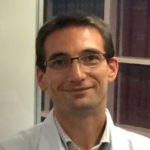
Moderator: Thomas Funck-Brentano is a clinical rheumatologist with a preclinical background. He is a member of the ECTS Academy since 2016. He trained in University Paris Diderot and defendend his PhD (supervised by Pr Martine Cohen-Solal) in 2013 on the role of the Wnt signaling pathway in the subchondral bone in preclinical models of osteoarthritis. He then was assistant professor in the department of Rheumatology in Hôpital Lariboisière in Paris (2012-2016) were he got particularly interested in managing bone diseases, such as osteoporosis and rare bone diseases. He has recently moved to the University of Gothenburg (Sweden) in Pr Claes Ohlsson’s group to enhance his skills in translational research. His project on the functional studies of NOTUM as a regulator of cortical bone mass was granted by Sweden’s Innovation Agency Vinnova for a two-year fellowship. He is also involved in clinical research projects on the link between bone and cardiometabolic diseases and osteoarthritis using various large databases.
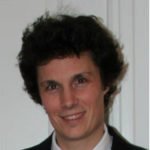
Non invasive evaluation of bone microarchitecture
Featuring Prof. Roland Chapurlat, Université de Lyon, Lyon, France
and moderated by Tilen Krajnic
Date & Time: 7 June 2018, 4pm CET
Costs: Live webinar is free for ECTS members and non-members, but a registration is required. Recordings are accessible to ECTS members only.
Objectives:
- Learn about non-invasive microstructure measurements for better fragility fracture predictions
- Learn about diagnostic value of non-invasive microstructure assessments
- Understand assessment of microstructure by high resolution peripheral QCT method
- Understand advantages of high resolution peripheral QCT measurements of bone microstructure in comparison with DXA
Presenter: Dr Roland Chapurlat has been a Professor of Rheumatology at the University Claude Bernard-Lyon 1 since 2005. He is the Chief of the Division of Rheumatology and Bone Diseases at Edouard Herriot Hospital In Lyon France and the head of the Department of medicine in this same hospital. Dr Chapurlat is also leading the team “Bone and chronic diseases” at INSERM UMR 1033 and a reference center for rare bone diseases in Lyon, France. His main research interests are osteoporosis, osteoarthritis and rare bone diseases such as fibrous dysplasia of bone and osteogenesis imperfecta. He has published more than 250 articles in peer-reviewed journals.
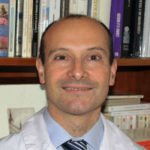
Preclinical imaging modalities
Featuring Dr. Claus-Christian Glüer, Professor of Medical Physics
and moderated by Bram Van der Eerden
Date & Time: 17 May 2018, 4pm CET
Costs: Live webinar is free for ECTS members and non-members, but a registration is required. Recordings are accessible to ECTS members only.
Objectives:
- Understanding the concept of quantitative parametric imaging studies
- Learn about caveats and quality aspects of parametric imaging
- Understand the respective advantages and limitations of different imaging technologies
- See examples of morphological, functional, and molecular imaging studies of bone and other tissues
- Understand requirements for sequential and time lapse imaging in vivo
Presenter: Claus-Christian Glüer is Professor of Medical Physics in the Department of Radiology and Neuroradiology at the University Medical Center Schleswig-Holstein, Christian-Albrechts-University in Kiel, Germany. For over 30 years, Professor Glüer has focused his research on osteoporosis and other metabolic bone diseases. His research is aimed at the development of innovative parametric-imaging techniques and their quantitative evaluation. Professor Glüer has contributed specifically to the development of bone densitometry, quantitative ultrasound methods and high-resolution computed tomography approaches. He has coordinated several multicentre studies, and is responsible for developing case-finding models and strategies for the German Osteoporosis Guidelines.
Professor Glüer is particularly interested in multimodal technologies for molecular imaging, with applications in oncology, inflammation and skeletal research. He co-founded the Molecular Imaging North Competence Center at the Christian-Albrechts-University, a preclinical imaging lab, and is past President of the European Calcified Tissue Society, past President of the German Society for Osteology, and past-President of the German Academy of Bone and Joint Sciences. Professor Glüer has published more than 240 articles in peer-reviewed journals with h-index=63, 20 books and book chapters and he holds four patents.
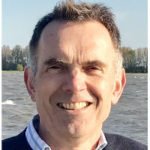
Moderator: Bram van der Eerden studied Biology in Utrecht (the Netherlands) and received his PhD in 2002 in Leiden (the Netherlands) working on the hormonal regulation of growth plate cartilage. Since then, he has been working within the department of Internal medicine of the Erasmus MC in Rotterdam on the role of calcium channels in bone and is now mainly involved in the functional characterization of novel compounds/genes/pathways that are anabolic to bone, using in vitro and in vivo models. Currently, he is group leader of the laboratory for Calcium and Bone Metabolism of Internal Medicine at the Erasmus MC. Bram has (co)-authored >50 peer-reviewed papers, has been board member of the Dutch Calcium and Bone Metabolism Society (NVCB) for 6 years and is now in the Bone networking group of the Dutch Society for Endocrinology. He was co-chair of the IBMS young investigator committee and is currently chairing the ECTS Webinar Committee. He has been involved in a number of international projects, including an ongoing Horizon2020 Marie-Curie Staff Exchange project (RUBICON) focusing on the molecular pathways in connective tissue diseases. His research group consists of 2 senior scientists, 1 Post-doc, 4 PhD students and 2 technicians.
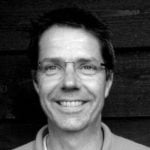
Update on Atypical Femur Fractures
Featuring Bo Abrahamsen
and moderated by Thomas Funck-Brentano, CBAR, University of Gothenburg
Date & Time: 19 April 2018, 4pm CET
Costs: Live webinar is free for ECTS members and non-members, but a registration is required. Recordings are accessible to ECTS members only.
Objectives:
- Be able to diagnose AFF and take appropriate treatment decisions
- Understand the epidemiology and pharmacoepidemiology of these fractures
- Be able to advise patients and colleagues on AFF
- Understand the unknowns and directions for future research for AFFs
Presenter: Bo Abrahamsen is an endocrinologist at Holbæk Hospital in Denmark, a Silver Starred FLS Service, and primarily treats patients with osteoporosis, metabolic bone diseases and parathyroid disorders. He is also a professor of clinical database studies at the University of Southern Denmark. He attended Medical School in Odense, Denmark, the B.Sc. Hons Course in Experimental Pathology at St. Andrews, UK, and part of his PhD lab work at UMASS Medical Center, Worcester, MA. Main research interests include absolute fracture risk, secondary osteoporosis, fracture epidemiology and safety of anti-osteoporotic drugs and supplements. He served on both ASBMR Task Forces on Atypical Femur Fractures. Dr Abrahamsen is a member of the Committee of Scientific Advisors to the IOF, the Clinical Chair for the ECTS 2019 annual meeting SPC and Deputy Editor of JBMR plus. He is a former member of the Board of Directors of the American Society for Bone and Mineral Research and Associate Editor of the Journal of Bone and Mineral Research.

Moderator: Thomas Funck-Brentano is a clinical rheumatologist with a preclinical background. He is a member of the ECTS Academy since 2016. He trained in University Paris Diderot and defendend his PhD (supervised by Pr Martine Cohen-Solal) in 2013 on the role of the Wnt signaling pathway in the subchondral bone in preclinical models of osteoarthritis. He then was assistant professor in the department of Rheumatology in Hôpital Lariboisière in Paris (2012-2016) were he got particularly interested in managing bone diseases, such as osteoporosis and rare bone diseases. He has recently moved to the University of Gothenburg (Sweden) in Pr Claes Ohlsson’s group to enhance his skills in translational research. His project on the functional studies of NOTUM as a regulator of cortical bone mass was granted by Sweden’s Innovation Agency Vinnova for a two-year fellowship. He is also involved in clinical research projects on the link between bone and cardiometabolic diseases and osteoarthritis using various large databases.

Bone fragility in childhood – a complex and evolving subject
Featuring Nick Bishop
and moderated by Nerea Alonso Lopez, Rheumatology and Bone Disease Unit, Centre for Genomic and Experimental Medicine, University of Edinburgh, United Kingdom
Date & Time: 5 April 2018, 5pm CET
Costs: Live webinar is free for ECTS members and non-members, but a registration is required. Recordings are accessible to ECTS members only.
Objectives:
- Understanding the genetic origins of bone fragility in children
- Understanding current concepts of the pathophysiology of osteogenesis imperfecta
- Understanding current paradigms in differentiating bone fragility from inflicted injury when infants present with unexplained fractures.
Presenter: Nick Bishop, Professor of Paediatric Bone Disease, Director of the Clinical Research Facility at Sheffield Children’s Hospital
Professor Nick Bishop is an internationally recognised expert in the field of paediatric bone research with a particular focus on experimental medicine/early phase studies in osteogenesis imperfecta, steroid-induced or disease-associated osteoporosis and hypophosphatasia, as well as an interest in early life influences on later skeletal health. He has published extensively on bone fragility during childhood. He is based at Sheffield Children’s Hospital, a member of the Rare Bone Disease ERN, and the lead designated centre for the nationally-commissioned Highly Specialised Severe, Complex and Atypical Osteogenesis Imperfecta Service. He is an Associate Director of the AR-UK Experimental Arthritis Treatment Centre, leading the bone theme, immediate Past-President of the Academic Paediatric Association of Great Britain and Ireland and Director of the Clinical Research Facility at Sheffield Children’s Hospital.
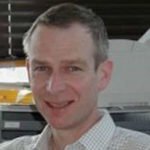
Moderator: Nerea Alonso Lopez, Rheumatology and Bone Disease Unit, Centre for Genomic and Experimental Medicine, University of Edinburgh, United Kingdom
Nerea Alonso received her PhD in Cancer Biology and Clinical studies at the University of Salamanca, Spain in 2008. Her PhD research focused on the molecular analysis of patients with Gorlin syndrome, a rare disease involving developmental alterations and basal cell carcinomas.
She has been awarded the ECTS New Investigator Award, as well as other prizes at international conferences. She is currently the roving director of the Society of Spanish Researchers in the UK, an independent organization aiming to develop at social and professional network of researchers in UK, bring science to the general public, serve as scientific advisors and build bridges for collaboration between Spain and UK.
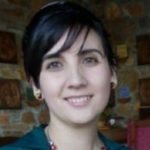
Epigenetic regulation of osteoblast differentiation
Featuring Riku Kiviranta
and moderated by Hanna Taipaleenmaeki
Date & Time: 15 March 2018, 4pm CET
Costs: Live webinar is free for ECTS members and non-members, but a registration is required. Recordings are accessible to ECTS members only.
Objectives:
- To understand the basic mechanisms of epigenetic regulation
- To get familiar with the methods of epigenetic research
- To learn how the transcriptome is regulated by epigenetic mechanisms during cellular differentiation
- To share data newly generated on the regulation of osteoblast differentiation
Presenter: Riku Kiviranta M.D., Ph.D., Assistant Professor in Endocrinology and Metabolic Diseases, University of Turku and Turku University Hospital
Dr. Riku Kiviranta graduated as an M.D. from the University of Turku, Finland in 2000 and defended his Ph.D. thesis on the role of Cathepsin K in bone metabolism in 2004 at the University of Turku. He did his post-doctoral training in the laboratory of professor Roland Baron at Yale University and Harvard Medical School during 2005-2010, after which he returned to Finland to continue his clinical training in Endocrinology as well as founding his own research group. He finished his Endocrinology training in 2015, after which he has worked as a consultant in Endocrinology at the Turku University Hospital. He was appointed as Assistant Professor in Endocrinology and Metabolic Diseases in 2018. Dr. Kiviranta’s group focuses on the role of Wnt signaling in bone metabolism, in epigenetic regulation of osteoblast differentiation and the role of bone marrow adipose tissue in bone health.
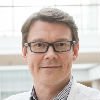
Moderator: Hanna Taipaleenmäki, Molecular Skeletal Biology Laboratory (MSB-Lab), University Medical Center Hamburg-Eppendorf
Dr. Hanna Taipaleenmaki is a group leader in the Molecular Skeletal Biology Laboratory (MSB-Lab) at the University Medical Center Hamburg-Eppendorf in Hamburg, Germany. During her PhD studies at the University of Turku, Finland and at the Endocrine Research Unit, Odense University Hospital, Denmark she developed a strong interest in post-transcriptional regulation of osteoblast differentiation and bone formation by non-coding RNAs. During her post-doctoral training at the University of Massachusetts Medical School, USA and at the University Medical Center Hamburg-Eppendorf, Germany. She further elucidated the contribution of microRNAs in pathological bone remodeling with specific focus on cancer-induced bone disease. Currently her research group is investigating the role of osteoblasts in breast cancer-induced metastatic bone disease. Hanna is an active member of scientific societies including the ECTS and the ASBMR and her work has been awarded several awards, fellowships and grants.

BOND ERN: an opportunity for research?
Featuring Dr Luca Sangiorgi, Rizzoli Rare Disease Center , Bologna, Italy,
and moderated by Nadia Rucci, University of L’Aquila, L’Aquila, Italy
Date & Time: 8 February 2018, 4-5pm CET
Costs: Live webinar is free for ECTS members and non-members, but a registration is required. Recordings are accessible to ECTS members only.
Objectives
- To become familiar with BOND European Reference Network (ERN) activities
- To review the possibilities of interactions within ERNs
- To review the integration of care and research within ERNs
Presenter: Dr Luca Sangiorgi, Rizzoli Rare Disease Center, Bologna, Italy
Luca Sangiorgi helds a Medical degree from the University of Bologna, a PhD in Clinical Genetics at “La Sapienza” University of Rome and a Master Degree in Research Promotion and Governance in Hospital Trusts and Local Health Units at the University of Modena and Reggio Emilia.
He has been Visiting Scientist at the Molecular Oncology Section, Paediatric Branch of the National Cancer Institute in Maryland (USA).
He is coordinator of the Rizzoli Rare Disease Center and responsible of four National Registers of Rare Disease (Multiple Hereditary Exostoses, Osteogenesis Imperfecta, Ehrler Danlos and Ollier Disease). He also coordinates the Emilia Romagna Region Hub and Spoke Network on Rare Bone Disorders.
Italian representative in the Assembly of Member States (AoM) of BBMRI (Biobanking and Biomolecular Resources Research Infrastructure) since 2013, he is currently acting as Chair of the AoM and Coordinator of the BBMRI Rare Disease Interest Group.
Since December 2014 he is acting as Alternate of the Representative of Italian Government for the Committee for Advanced Therapies (CAT) of the European Medicine Agency (EMA).
Since March 2017 he is the coordinator of BOND ERN that includes 38 Centres of Excellence for the treatment of Rare Bone Disorders in 10 EU Member States.
As member of many different medical and scientific societies, he has been appointed President of Connective Tissue Oncology Society and International Skeletal Dysplasia Society.
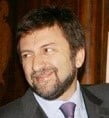
Moderator: Nadia Rucci, University of L’Aquila, Italy
Nadia Rucci is Associate Professor and head of the Skeletal Diseases Laboratory (Department of Biotechnological and Applied Clinical Sciences, University of L’Aquila, Italy). She graduated in Biology at “La Sapienza” University of Rome (Italy), then she moved to the University of L’Aquila, where she achieved her PhD in Endocrinology and Metabolic Diseases. Nadia Rucci’s research is mainly focused on oncologic (breast cancer induced bone metastases), metabolic (osteoporosis) and genetic (osteopetrosis) bone diseases. Nadia is currently PI of two projects: “Extracellular vesicles as new therapeutic approach to target bone tumour cells” funded by the Italian Association of Cancer Research and “Bone phenotype in Duchenne muscular dystrophy: unveiling the role of LCN2 and implications for therapy” funded by AFM-Telethon. She has published 63 original research articles in peer-review international journals.
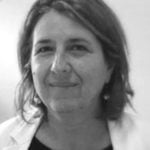
Big Data, Omics, and the Need to Replicate
Featuring Prof. André Uitterlinden, Dept of Internal Medicine & Epidemiology, Erasmus MC, The Netherlands
and moderated by Nerea Alonso Lopez, Rheumatology and Bone Disease Unit, Centre for Genomic and Experimental Medicine, University of Edinburgh, United Kingdom
Date & Time: 18 January 2018, 4-5pm CET
Costs: free webinar for ECTS members and non-members, but a registration is required
Objectives
- To become familiar with Big Data in Life Sciences, complex biology and Genomics/Genetics
- To understand a few examples of Technology and Big Omics Datasets
- To understand analytical challenges in big data analysis
- To understand the best way forward in obtaining robust results
Presenter: Prof. André Uitterlinden, Dept of Internal Medicine & Epidemiology, Erasmus MC, The Netherlands
André Uitterlinden is Professor of Complex Genetics at the Erasmus Medical Centre in Rotterdam – The Netherlands – where he holds positions in 3 departments: Internal Medicine, Epidemiology, and Clinical Chemistry.
His research is focusing on genetic factors for common traits and disease, including anthropometry, endocrine traits & disorders and locomotor disease such as osteoporosis and osteoarthritis. At Erasmus MC he is also head of one of Europe’s largest high-throughput DNA facility, providing services for DNA isolation, genotyping and sequencing.
As a PI (Personal Investigator) and member of the MT, he is coordinating all molecular genetic analyses in 2 major cohort studies at Erasmus MC: the Rotterdam Study (12,000 elderly subjects) and the Generation R birth-cohort (n=7,000 children +12,000 parents).
He is collaborating with many (large) international epidemiological study populations and coordinates the GEFOS consortium involving >150.000 subjects to identify genetic risk factors for osteoporosis. He is a member of the Research Steering Committee of the CHARGE consortium and was director of the Netherlands Consortium for Healthy Aging (NCHA).
He has published over 850 papers in refereed journals (H-index 116, source Web of Science); furthermore he is leading annual international well known courses on complex genetics at Erasmus MC in Rotterdam – The Netherlands.
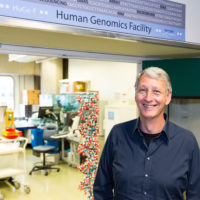
BoneCLARITY
Date & Time: 7 December 2017, 4-5pm CET
Costs: free webinar for ECTS members and non-members, but a registration is required
Join Alon Greenbaum (California Institute of Technology, CalTech) to hear about Bone CLARITY, a bone tissue clearing method that enables visualization of the physiological processes at the cellular level in an intact bone environment. During this one-hour session Alon will present his work and how he used Bone CLARITY to detect the endogenous fluorescence of Sox9-tdTomato+ osteoprogenitor cells in the tibia, femur, and vertebral column of adult transgenic mice.
Presenter: Alon Greenbaum, California Institute of Technology, CalTech
Alon holds his BS and MS degrees in Electrical Engineering from Tel Aviv University, and his Ph.D in Electrical Engineering from University of California, Los Angeles. In his doctoral degree, Alon conducted biophotonics research under Prof. Aydogan Ozcan, focusing on high-resolution and high-throughput microscopy for biomedical applications. In Prof. Viviana Gradinaru’s lab (California Institute of Technology), he is exploring innovative imaging techniques for various bone and neuroscience applications. Alon have been awarded the Good Ventures Postdoctoral Fellowship of the Life Sciences Research Foundation, as well as the Howard Hughes Medical Institute International Student Research Fellowship. Alon have published over 25 peer reviewed journal articles and his work has been presented in over 30 conferences.
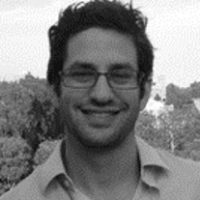
Moderator: Nadia Rucci, University of L’Aquila, Italy
Nadia Rucci is Associate Professor and head of the Skeletal Diseases Laboratory (Department of Biotechnological and Applied Clinical Sciences, University of L’Aquila, Italy). She graduated in Biology at “La Sapienza” University of Rome (Italy), then she moved to the University of L’Aquila, where she achieved her PhD in Endocrinology and Metabolic Diseases. Nadia Rucci’s research is mainly focused on oncologic (breast cancer induced bone metastases), metabolic (osteoporosis) and genetic (osteopetrosis) bone diseases. Nadia is currently PI of two projects: “Extracellular vesicles as new therapeutic approach to target bone tumour cells” funded by the Italian Association of Cancer Research and “Bone phenotype in Duchenne muscular dystrophy: unveiling the role of LCN2 and implications for therapy” funded by AFM-Telethon. She has published 63 original research articles in peer-review international journals.
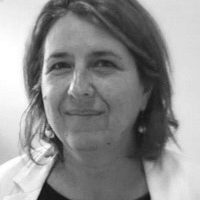
Gut Microbiota – Regulation of Bone Mass
Date & Time: 12 October 2017, 16:00 – 17:00 CET
Learning Objectives:
- To learn about possible mechanisms for the impact of the gut microbiota on bone mass.
- To understand challenges in preclinical research on gut microbiota and bone: how genetic background, age, diet, animal facility, sex and GM composition can impact the results.
- To critically evaluate the gut microbiota as a possible novel therapeutic target for osteoporosis and fracture prevention.
- To define probiotics and prebiotics and learn how changing the gut microbiota may impact bone.
- To understand the concept of transplantation of a beneficial faecal microbiota.
Presenter: Klara Sjögren, CBAR, University of Gothenburg
Klara Sjögren is Associate Professor in Molecular Medicine at the Centre for Bone and Arthritis Research at the Sahlgrenska Academy in Göteborg, Sweden. Her research focuses on connections between gut microbiota (GM) and bone mass and whether changes in GM could promote bone disease. She was the first to demonstrate that the gut microbiota regulates bone mass. Her research projects are translational and multidisciplinary connecting microbiology, endocrinology, immunology and bone metabolism and include cell cultures, experimental animal models and clinical trials.

Moderator: Thomas Funck-Brentano, CBAR, University of Gothenburg
Thomas Funck-Brentano is a clinical rheumatologist with a preclinical background. He is a member of the ECTS Academy since 2016. He trained in University Paris Diderot and defendend his PhD (supervised by Pr Martine Cohen-Solal) in 2013 on the role of the Wnt signaling pathway in the subchondral bone in preclinical models of osteoarthritis. He then was assistant professor in the department of Rheumatology in Hôpital Lariboisière in Paris (2012-2016) were he got particularly interested in managing bone diseases, such as osteoporosis and rare bone diseases. He has recently moved to the University of Gothenburg (Sweden) in Pr Claes Ohlsson’s group to enhance his skills in translational research. His project on the functional studies of NOTUM as a regulator of cortical bone mass was granted by Sweden’s Innovation Agency Vinnova for a two-year fellowship. He is also involved in clinical research projects on the link between bone and cardiometabolic diseases and osteoarthritis using various large databases.

Liquid Biopsy
Date & Time: 14 September 2017 from 4:00pm to 5:00pm CET
Objectives:
- Learn about the advantages/disadvantages of using liquid biopsies in the clinic
- Learn about the collection and use of liquid biopsies
- Learn about the content of liquid biopsies
- Learn about extraction methods of liquid biopsies
- Learn about miRNAs and their correlation with bone metabolism endpoints

Presenter: Matthias Hackl, CEO and co-founder, TAmiRNA GmbH
Matthias Hackl graduated in the area of Biotechnology from the University of Natural Resources and Life Sciences Vienna (Boku) in 2012. His studies of microRNA function in mammalian cell lines and model systems of Ageing involved rotations through labs at the University of Georgia and Minnesota in the United States as well as University Bielefeld in Germany. Matthias has won two private company grants for developing applications of PCR and Flow Cytometry based microRNA quantification tools and was honored by the Austrian Association of Molecular Life Sciences and Biotechnology for his achievements during his PhD. He has authored 30 publications and two book chapters in the field of microRNA biology and held a one-year PostDoc position in microRNA-based cell engineering at the Vienna Institute of Biotechnology before joining TAmiRNA. Matthias Hackl is also co-founder of Remute Bio GmbH, founded in 2016.

Moderator: Bram van der Eerden
Bram van der Eerden studied Biology in Utrecht (the Netherlands) and received his PhD in 2002 in Leiden (the Netherlands) working on the hormonal regulation of growth plate cartilage. Since then, he has been working within the department of Internal medicine of the Erasmus MC in Rotterdam on the role of calcium channels in bone and is now mainly involved in the functional characterization of novel compounds/genes/pathways that are anabolic to bone, using in vitro and in vivo models. Currently, he is group leader of the laboratory for Calcium and Bone Metabolism of Internal Medicine at the Erasmus MC. Bram has (co)-authored >50 peer-reviewed papers, has been board member of the Dutch Calcium and Bone Metabolism Society (NVCB) for 6 years and is now in the Bone networking group of the Dutch Society for Endocrinology. He was co-chair of the IBMS young investigator committee and is currently chairing the ECTS Webinar Committee. He has been involved in a number of international projects, including an ongoing Horizon2020 Marie-Curie Staff Exchange project (RUBICON) focusing on the molecular pathways in connective tissue diseases. His research group consists of 2 senior scientists, 1 Post-doc, 4 PhD students and 2 technicians.